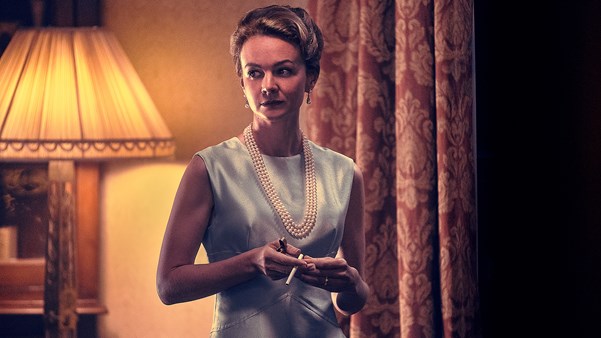Joaquin Phoenix's journey from Johnny Cash to Napoleon Bonaparte makes total sense, here's why.

‘You look like you’re going to a funeral,’ states Ginnifer Goodwin as Vivian Cash while Joaquin Phoenix’s Johnny Cash dresses for an audition. His already defeated response: ‘Maybe I am.’ Walk the Line (2005), the biopic following country singer Johnny Cash’s rise to fame, is a notable role from Phoenix's early career. As the film follows the star from his traumatic childhood to the recording studio to a battle with pill addiction, Phoenix offers vital insight into the man in black, playing Cash with tremendous nuance. We see his boyish nature, his undeniable stage presence and his unending desperation for the love of his life June Carter (Reese Witherspoon).
Though at times melancholic, as the price of fame comes crashing down on Cash’s head, the beating heart at the core of Walk the Line is the love story between Cash and Carter, kept pumping by their electric chemistry. This is one of Phoenix's most attractive roles, and the audience understands why, despite his grovelling and snivelling behaviour, June Carter cannot help but fall for the singer.
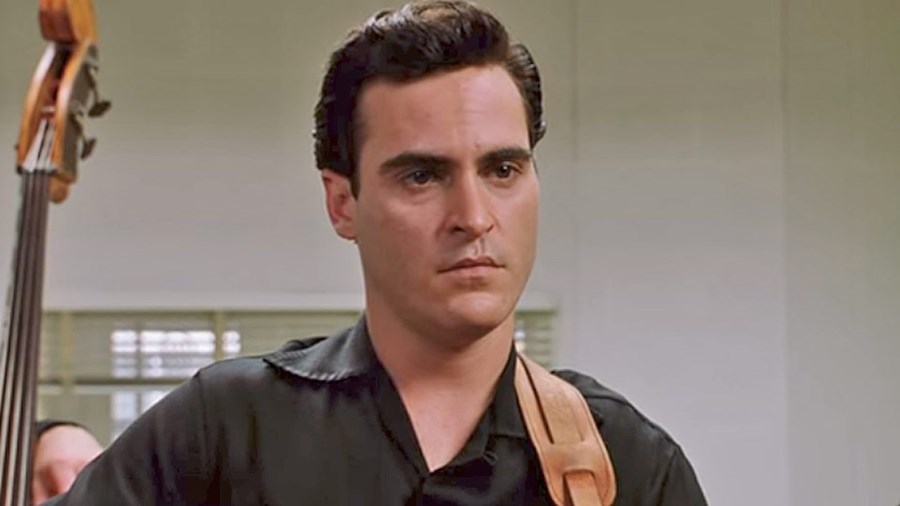
Walk the Line (2005)
Phoenix’s performances are capable of a suave pull, but he rarely takes on such ‘handsome’ roles, choosing instead to personify pathetic men. There’s an embedded misery that runs through his portrayal of the country star that seems to have influenced every role since. Now, when we think of Phoenix, we see Theodore Twombly, the divorcé who seeks comfort with his AI computer programme in Her (2014); the suffering veteran who has found sinister employment since returning home in You Were Never Really Here (2017); or his demented-dancing rendition of the Joker in Joker (2019). Instead of becoming the heartthrob movie star, Phoenix has travelled a peculiar path – but if you’ve been paying attention, this unique road from Johnny Cash to Napoleon Bonaparte does make sense.
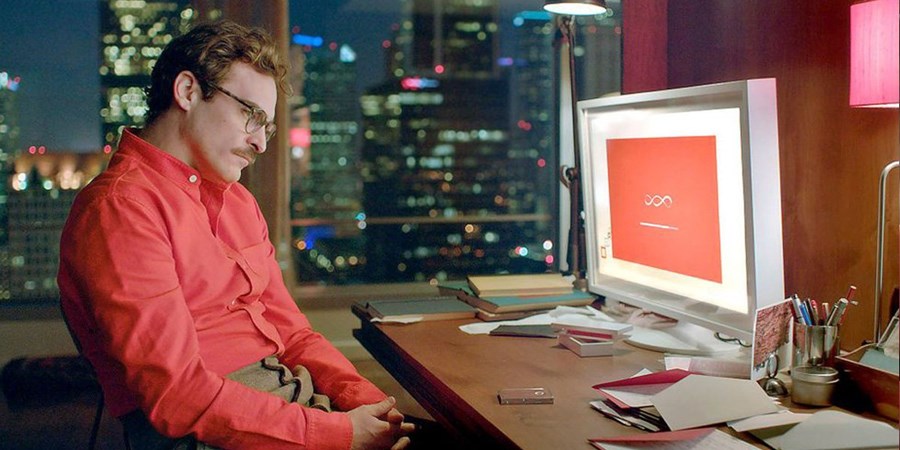
Her (2013)
After Walk the Line, the actor took a seven-year sabbatical until resurfacing in Paul Thomas Anderson’s The Master (2012), playing a pivotal role as Freddie Quell, a navy seaman struggling to readjust to the world after returning from World War II. The boyish nature of his Cash performance carries through here, but despite being similarly coiffed, Quell’s overtly infantile nature removes any of Phoenix’s natural appeal. He’s a sniggering, immature man who sculpts women's bodies out of sand and is drawn to the allure of Lancaster Dodd’s (Philip Seymour Hoffman) burgeoning cult, The Cause, not due to the odd philosophy Dodd preaches, but because, simply put, he has nowhere else to go. Quell quickly becomes the movement’s most doggedly loyal member (and in time, its greatest liability).
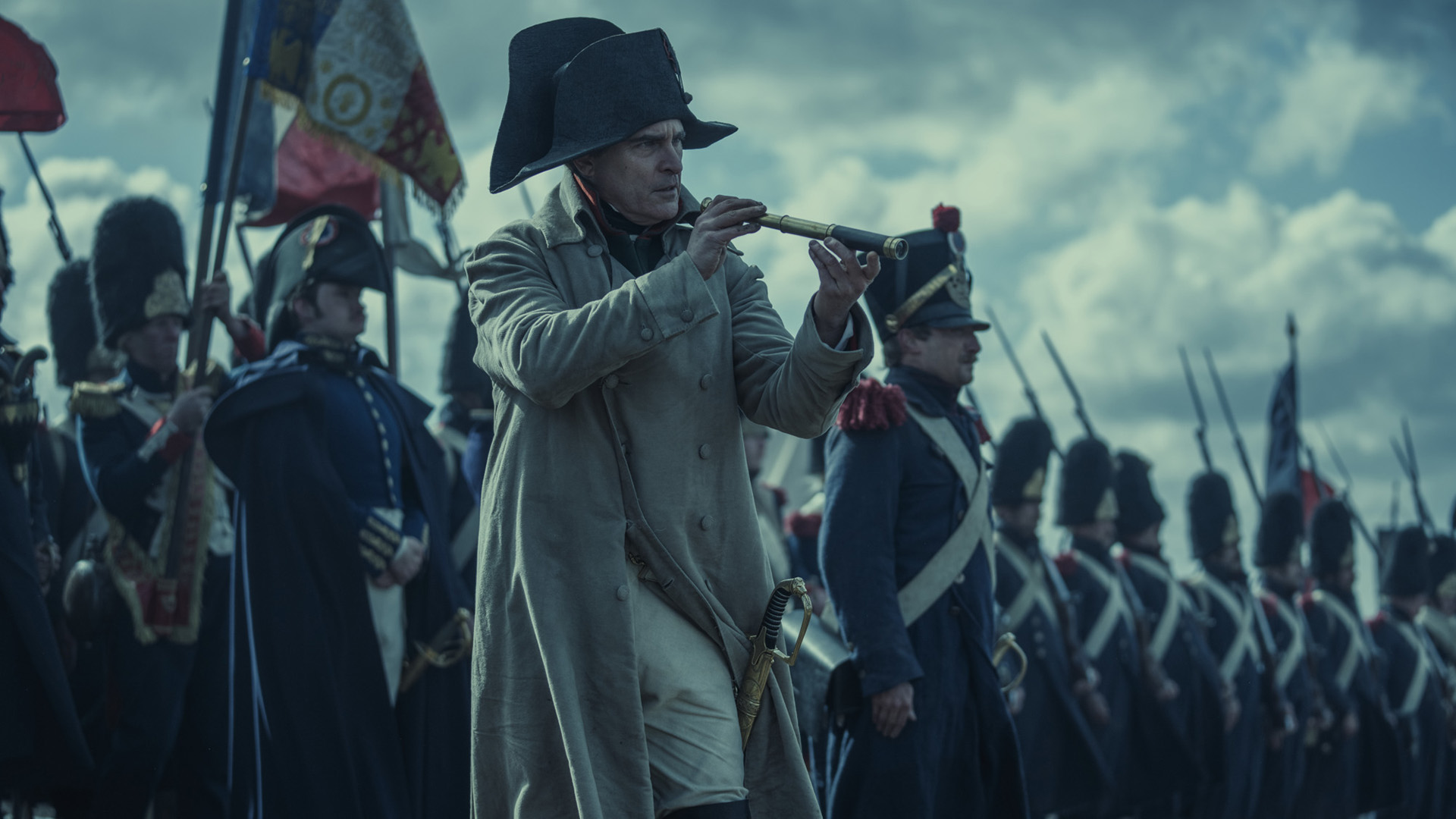
The Master marked the beginning of a physicality which has become a signature of Phoenix's performances. If Colin Farrell is known best for his eyebrow acting, Joaquin Phoenix's bodily contortions are unique to him, angling his body in uncomfortable ways that cause the audience to straighten up in response. When Quell is arrested, Phoenix’s movement evokes the character’s carnal nature, flinging his body at the prison’s bunk bed, jackhammering his back against the frame. This demonstrates Quell’s basic instinct, one that has been hinted at by the uncomfortable way he holds himself, slouching his body and jutting his elbows out whenever he places his hands on his hips. Like most of Phoenix’s roles, this is not a man who naturally fits into proper society.

The Master (2012)
Cash may have tread the line of the outcast, but many parts Phoenix has taken on since have explored men at the extremity of pariah status. With an emaciated figure representing the austerity politics and lifelong neglect that have ravaged Arthur Fleck, Phoenix pushes his corporeal acting to its limits in Joker. Pulling at the loose skin on his face, pushing out his ribcage and stretching his skinny limbs to the brink, the actor leans into the awkward shadow he casts. Many have succeeded in giving Batman’s villainous rival a camp, sinister edge, but it is Joaquin Phoenix’s breaking of bodily boundaries that offers the cruellest depiction of the Joker.

Joker (2019)
Through his physicality all of his characters are rendered as simpering, miserable men, no matter the dapper nature of the suit, or decorated uniform. And it’s this quality that makes him perfect for the role of Napoleon Bonaparte, the titular historical figure – notorious for his obstinate military conduct and his small man syndrome (hence the phrase Napoleon complex) – in Ridley Scott’s latest epic. While the rest of the cast of Napoleon play it straight, Phoenix understands that in order to bring the French commander to life he must reduce him to a weird little guy. What we get is an absurd and often slapstick performance of a man who, despite his status, is brought low by the woman he is infatuated with: Empress Josephine (Vanessa Kirby).
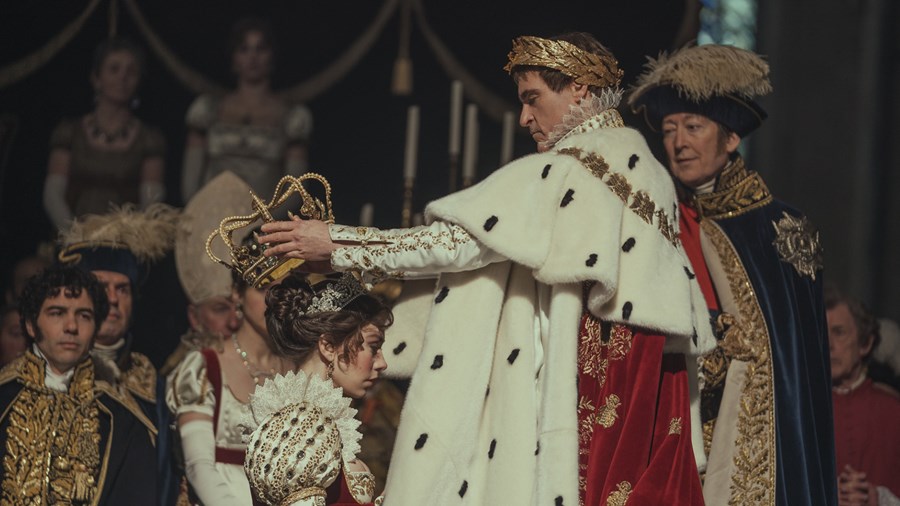
Napoleon (2023)
A continuing theme in Phoenix’s filmography is the way his characters pursue love, with the needy determination of a teenage boy. Vivian Cash calls Johnny ‘a pathetic excuse for a man’, an insult that could be hurled at many of his subsequent roles. He is often whimpering, searching for reassurance from the object of his affections. In Her, Theodore Twombly is dismayed when he finds out his AI lover (Scarlett Johansson) is in love with many other people; she is not just his operating system. While in Napoleon, his letters to Josephine are, in a cloying tone, demanding her fidelity, as his voiceover breaks into a high-pitched squeal.
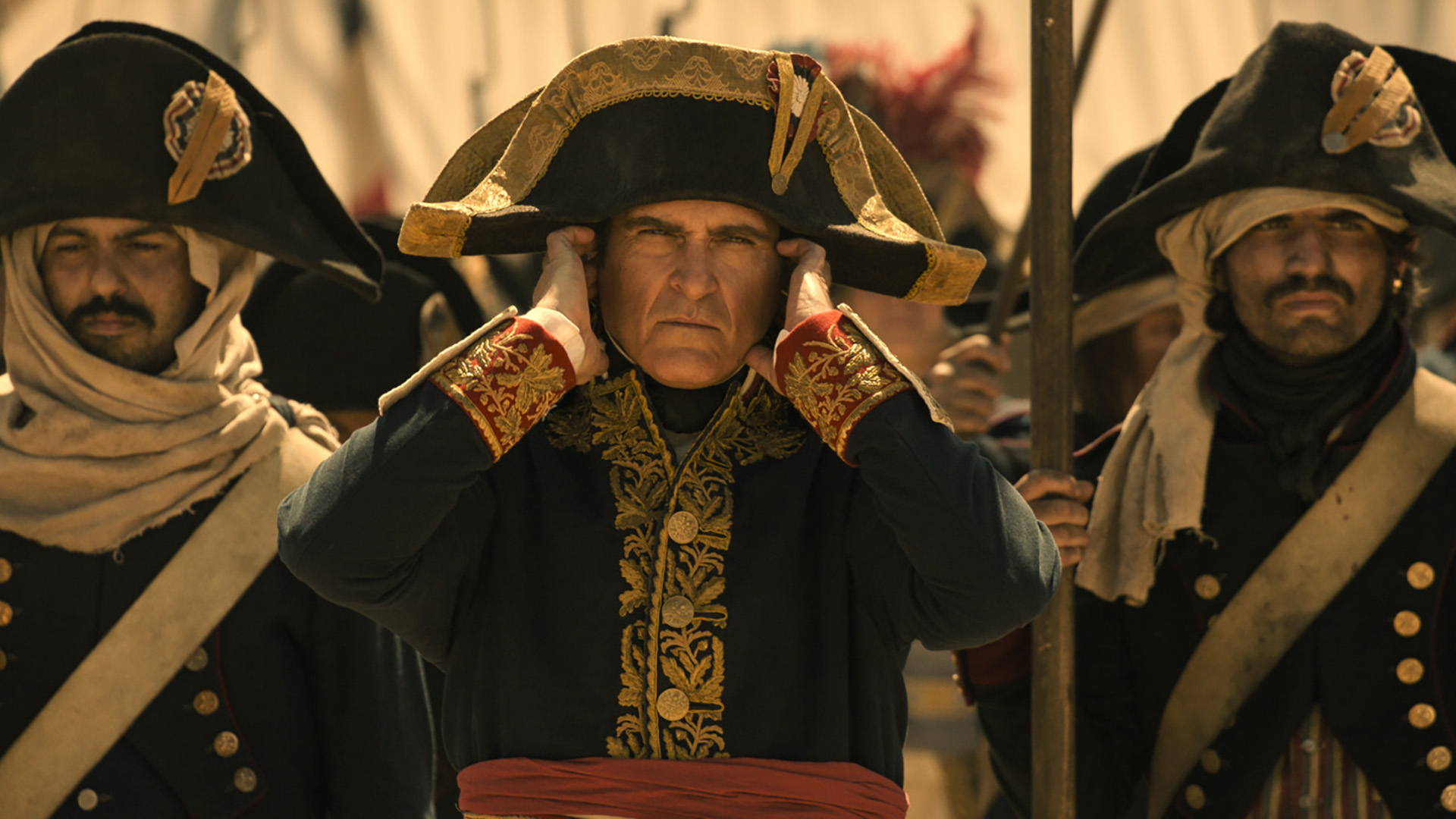
2023 has been bookended by his portrayal of men in sheer panic. The year began with Phoenix becoming the anxiety-riddled mess that runs through Beau is Afraid, playing Beau, a man who takes neurosis and hypochondria to an extreme, scared of absolutely everything. And here we are, at the end of the year, with Napoleon – a highlight of Phoenix’s impressive career thus far – as he brings to life the pitiful man behind the complex. No one seems more terrified by the graphic scenes of war than Napoleon himself, thanks to Phoenix’s knitted brow and flashes of lost childlike fear.
From Johnny Cash to Napoleon Bonaparte, his performances embody the broken man we have come to expect from the accomplished actor. Through Phoenix’s performance, these are all men who physically carry their shame, trauma and isolation on their shoulders. Analogous with his body of work, Napoleon, in Joaquin’s hands, becomes an awkward figure, forcing those to compose themselves uneasily in his presence. No matter a character’s fame, comic book villainy or military ranking, a Joaquin Phoenix performance will always bring the great's to their knees, where they can be found in their natural habitat: grovelling.
NAPOLEON IS IN CINEMAS NOW




